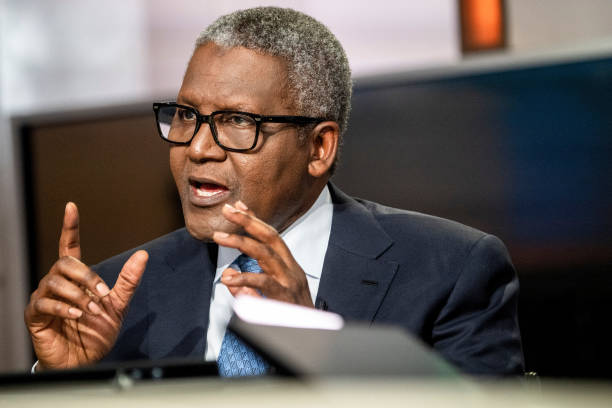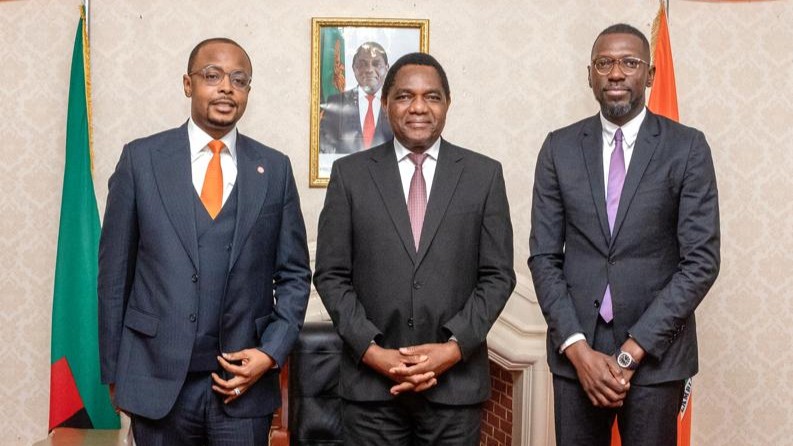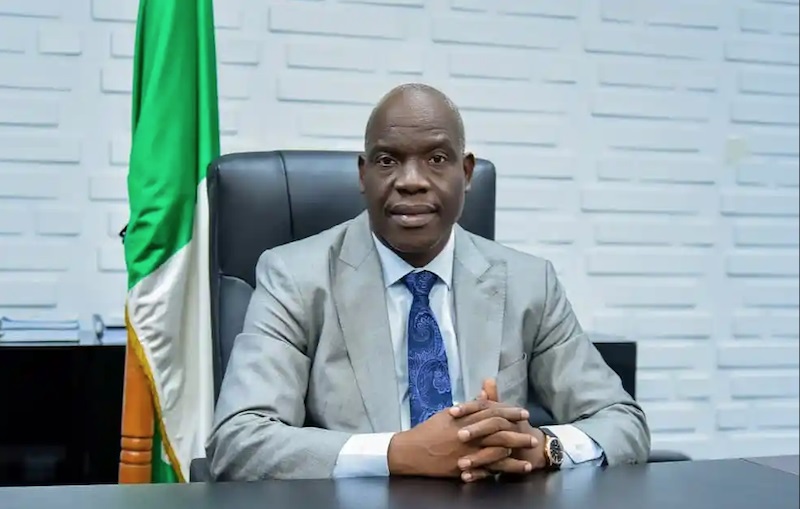
Aliko Dangote, President and Chief Executive of Dangote Group, has urged the Federal Government to eliminate fuel subsidies entirely, noting that removing subsidies would enable the accurate assessment of petrol consumption in Nigeria.
During an interview with Bloomberg Television in New York on Monday, Dangote confirmed ownership of two oil blocks in the upstream sector, with production expected to start next month.
READ MORE: Dangote confirms two new oil blocs, production set for October
Dangote said that the fuel production from his $20 billion mega refinery in Lagos, which has a capacity to refine 650,000 barrels of crude oil daily, will alleviate pressures on the naira. He said, “Subsidy is a very sensitive issue. Once you are subsidising something then people will bloat the price and then the government will end up paying what they are not supposed to be paying. It is the right time to get rid of subsidies.”
He continued, “But this refinery will resolve a lot of issues out there, you know, it will show the real consumption of Nigeria, because, you know, nobody can tell you. Some people say 60 million litres of gasoline per day. Some say it’s less. But right now, if you look at it by us producing, everything can be counted. So everything can be accounted for, particularly for most of the trucks or ships that will come to load from us. We are going to put a tracker on them to be sure they are going to take the oil within Nigeria, and that, I think, can help the government save quite a lot of money. I think it is the right time, you know, to remove the subsidy.”
READ MORE: Senate probes root causes of economic sabotage in petroleum industry
Reflecting on the challenges faced after launching the project in 2013, including a five-year delay due to issues with state governments and host communities, as well as a running loan of $2.4 billion, Dangote expressed pride in achieving this milestone.
Regarding the refinery’s viability without subsidies, he explained, “Well, you see, we have a choice of either one. We produce, we export, and when we produce, we sell locally. But we are a big private company. And yes, it’s true, we have to make a profit. We build something worth $20 billion so definitely we have to make money.”
He further noted, “The removal of subsidies is totally dependent on the government, not on us. We cannot change the price, but I think the government will have to give up something for something. So I think at the end of the day, this subsidy will have to go.”
President Bola Tinubu removed the subsidy upon taking office in May 2023, exacerbating a cost-of-living crisis that sparked protests, but quickly reinstated it as inflation surged. Recently, a step towards ending the subsidy was taken when the gasoline cap was eased, although the price remains below the market level.
READ MORE: NNPCL’s reduction in refinery stake huge mistake, says Dangote
Until Dangote’s refinery began operations, Nigeria was entirely reliant on imported petroleum products and has been cautiously attempting to eliminate the costly fuel subsidies, which amounted to $10 billion in 2022.
Dangote said that ending petrol imports would significantly alleviate currency pressures. “Petroleum products consume about 40 per cent of our foreign exchange,” he noted, adding that fuel from his refinery, which commenced gasoline supply to the state-owned oil company on September 15 for domestic sale, “can actually stabilise the naira.”
Continuing the interview, Dangote discussed a pricing disagreement with the Nigerian National Petroleum Company Limited (NNPC). He clarified that while the national oil company purchased gasoline from his refinery at international prices, it announced a uniform price that did not accurately reflect the cheaper cost of his product compared to imported fuel.
Dangote revealed plans for crude oil sales set to begin in October, explaining that discussions are ongoing to finalise details of the agreement, which will allow the sale of crude in naira. This arrangement aims to reduce pressure on the naira and provide a more stable pricing structure for fuel in the domestic market.
READ MORE: CBN puts external reserves at $37.31 billion
In related developments, the Federal Government has announced plans to provide land for interested entities to establish a tanker park for lifting petrol and other products from the Dangote refinery. This decision follows a recent inspection by the Minister of Works, Dave Umahi, who raised concerns about the over 3,000 fuel tankers queuing on the new concrete pavement road, which is not designed to handle static loads.
Umahi stated, “From my inspection yesterday, we discovered that we had over 3,000 fuel trucks queuing for the Dangote fuel lifting, and they were all parked on the newly constructed road. Technically and by design, the roads were never built for static loads. And so it has a lot of effects. So, we will have the same thing we had in Apapa that damaged the entire road until it was constructed on concrete.”
Additionally, Umahi announced that the Federal Executive Council (FEC) approved various road projects, including a new contract for rehabilitating Maraban-Kankara-Funtua Road in Katsina State and the construction of a 258km three-lane carriageway as part of the Sokoto-Badagry superhighway project.






